Moria refugee camp in Lesbos: a pandemic ‘waiting to happen’
Doctor warns conditions in overcrowded camp mirror those that first spread Spanish flu in 1918
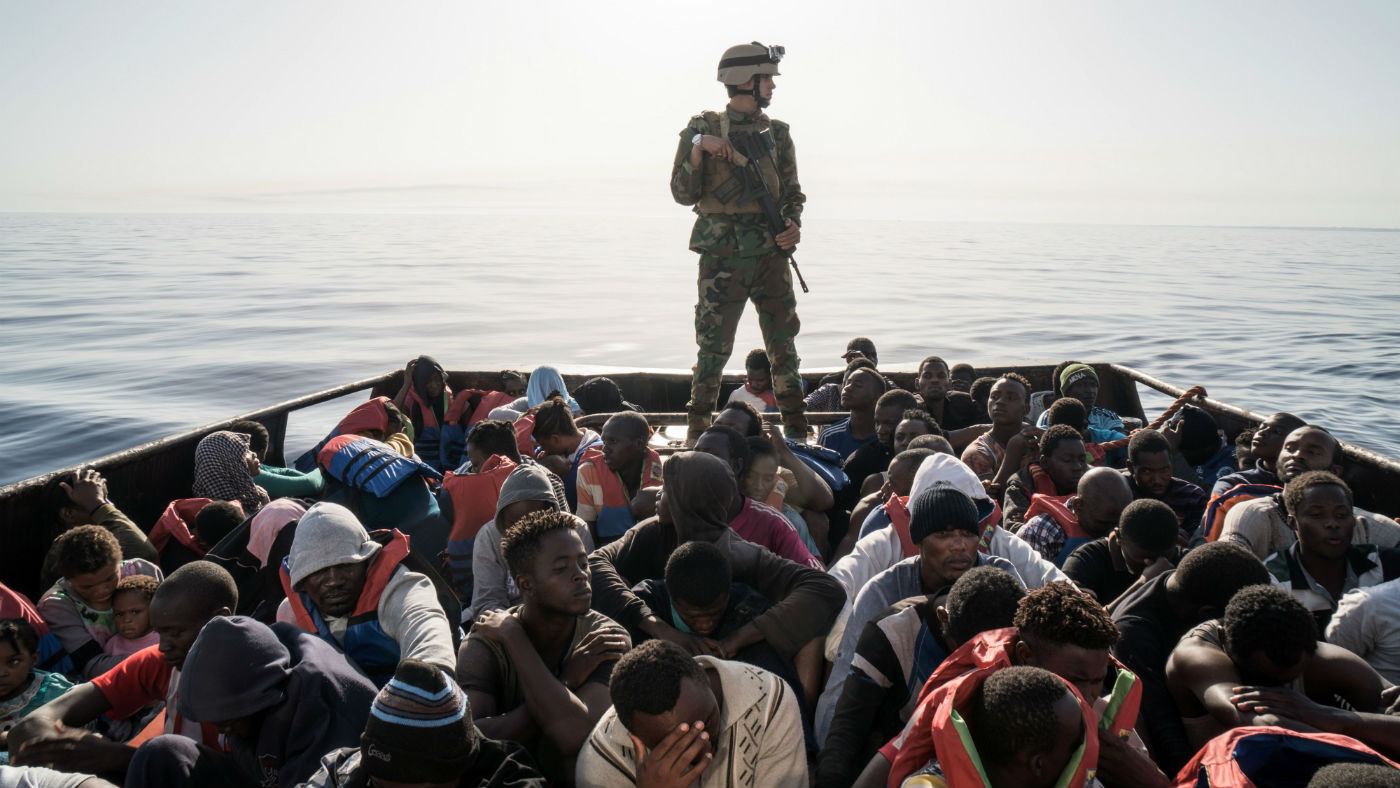
A free daily email with the biggest news stories of the day – and the best features from TheWeek.com
You are now subscribed
Your newsletter sign-up was successful
The vastly overcrowded Moria refugee camp in Lesbos could be the source of a pandemic mirroring the Spanish flu outbreak in 1918 that went on to kill tens of millions, a senior doctor has warned.
The Guardian spoke to Dr Hana Pospisilova, a consultant cardiologist who regularly gives her time to treat refugees on the Greek island. She told the newspaper she had “serious concerns” that a major public health crisis could arise there.
What is the Moria camp?
The Week
Escape your echo chamber. Get the facts behind the news, plus analysis from multiple perspectives.

Sign up for The Week's Free Newsletters
From our morning news briefing to a weekly Good News Newsletter, get the best of The Week delivered directly to your inbox.
From our morning news briefing to a weekly Good News Newsletter, get the best of The Week delivered directly to your inbox.
Moria is a former military base on Lesbos in Greece’s eastern Aegean islands, converted for use by asylum seekers in 2015, at the height of the migrant crisis. It was originally intended to house 2,300 migrants – but there are now almost 20,000 people living there and on the surrounding hillsides, The Times reports. In five years, Moria has become “Europe’s most notorious refugee camp”, says the newspaper, a “vast and squalid tent city”.
What about the unofficial settlements?
A new refugee settlement has grown up around Moria, housing migrants hoping to escape the crowded conditions in the official camp. They are fleeing not only horrendous overcrowding but “routine violence and unsanitary conditions”, The Times says. In makeshift tents, families are living without electricity, water or heating.
Why are the migrants in Greece?
A free daily email with the biggest news stories of the day – and the best features from TheWeek.com
Refugees and other migrants are arriving in small boats across the Mediterranean after long journeys from countries including Afghanistan, Syria, Iraq, Palestine, Somalia and the DRC. An EU containment policy keeps them on the Aegean islands where they first make landfall until their asylum requests have been processed, a tortuously slow process.
Are there other camps?
Yes, Moria is not the whole story in Greece. The UNHCR told The Guardian that more than 36,000 asylum seekers are staying in reception centres designed for 5,400 across five islands – Lesbos, Samos, Chios, Leros and Kos. Another six thousand are estimated to be on the islands but not in the centres, making 42,000 in total.
How bad are conditions in Moria?
The Guardian says the public health situation in Moria is “alarming”. Pospisilova told the paper: “What I saw there had me crying.” She reported “many” children she feared would die of malnutrition, suffering from scabies and other parasites, unable to wash. She saw adults with respiratory problems and bleeding gums sleeping in wet tents, their clothes unwashed for months.
What did Pospisilova say about a pandemic?
The senior doctor told The Guardian she was deeply concerned that the squalid, overcrowded conditions could lead to a pandemic illness breaking out. She compared the situation now to the beginning of the Spanish flu epidemic in 1918, in which tens of millions were killed.
Pospisilova said: “If you read about Spanish flu it was exactly like this that is began to spread, in overcrowded facilities where people had a viral infection that became a bacterial infection that killed them. This is what makes me worried. We are treating patients but nobody is healed, it’s impossible to heal them in these conditions.”
What else is at stake?
The risk is not only one to public health: last week, the governor of the North Aegean region, Kostas Moutzouris, said he was “shaking” with fear at the situation, which was a “powder keg ready to explode” with violence. Riot police had to be sent to the island to control angry migrants, The Guardian reported.
What can be done?
The UNHCR is calling on Greece to move ahead with its proposals to shift migrants from the overcrowded camps on the Aegean islands to the mainland where they can be better looked after. Moutzouris wants a state of emergency to be declared and many in Greece are calling on the EU’s containment policy to be revised so that migrants can be spread around the bloc.
-
 Buddhist monks’ US walk for peace
Buddhist monks’ US walk for peaceUnder the Radar Crowds have turned out on the roads from California to Washington and ‘millions are finding hope in their journey’
-
 American universities are losing ground to their foreign counterparts
American universities are losing ground to their foreign counterpartsThe Explainer While Harvard is still near the top, other colleges have slipped
-
 How to navigate dating apps to find ‘the one’
How to navigate dating apps to find ‘the one’The Week Recommends Put an end to endless swiping and make real romantic connections
-
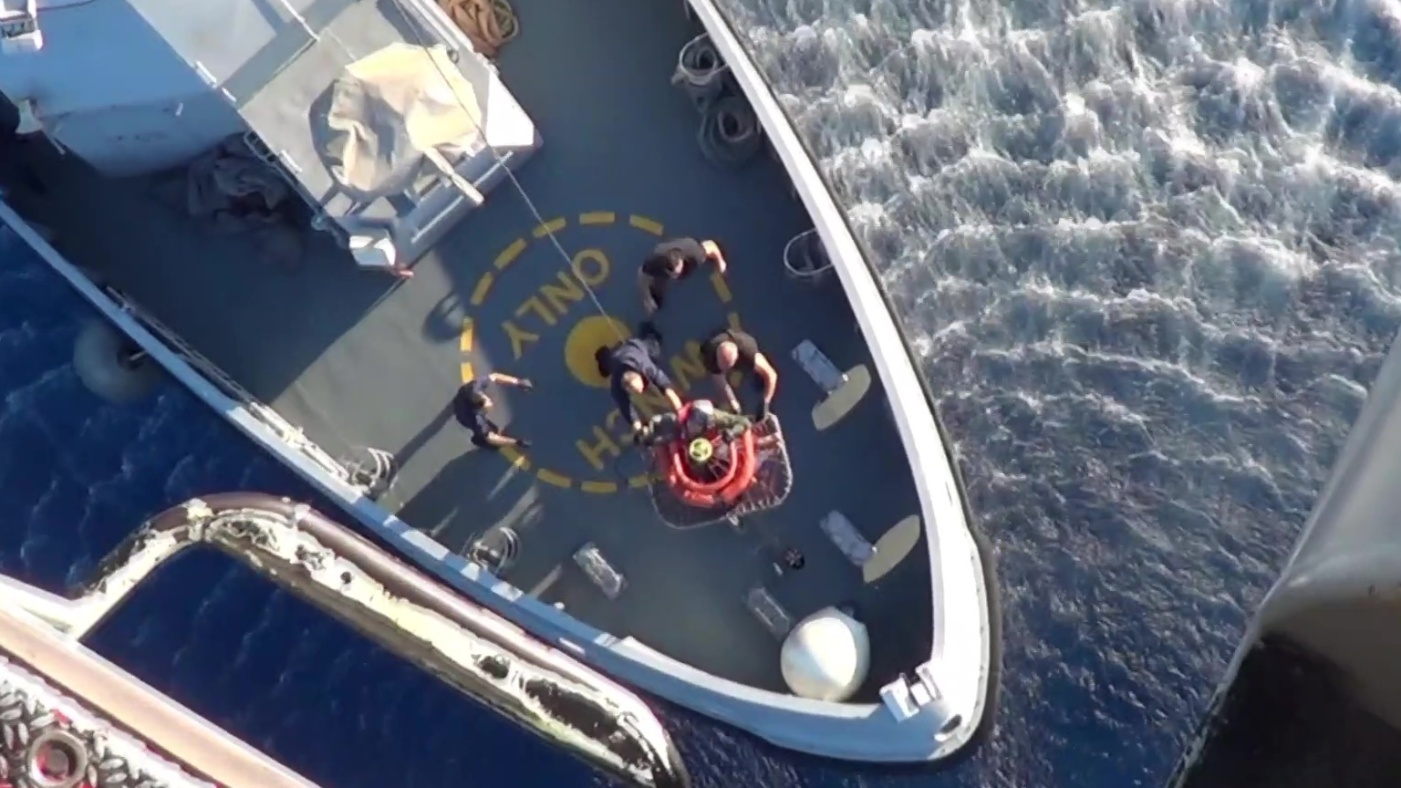 Tragedy at sea: hundreds feared dead in Greek migrant disaster
Tragedy at sea: hundreds feared dead in Greek migrant disasterSpeed Read At least 78 people are known to have died in sinking, with the death toll expected to rise
-
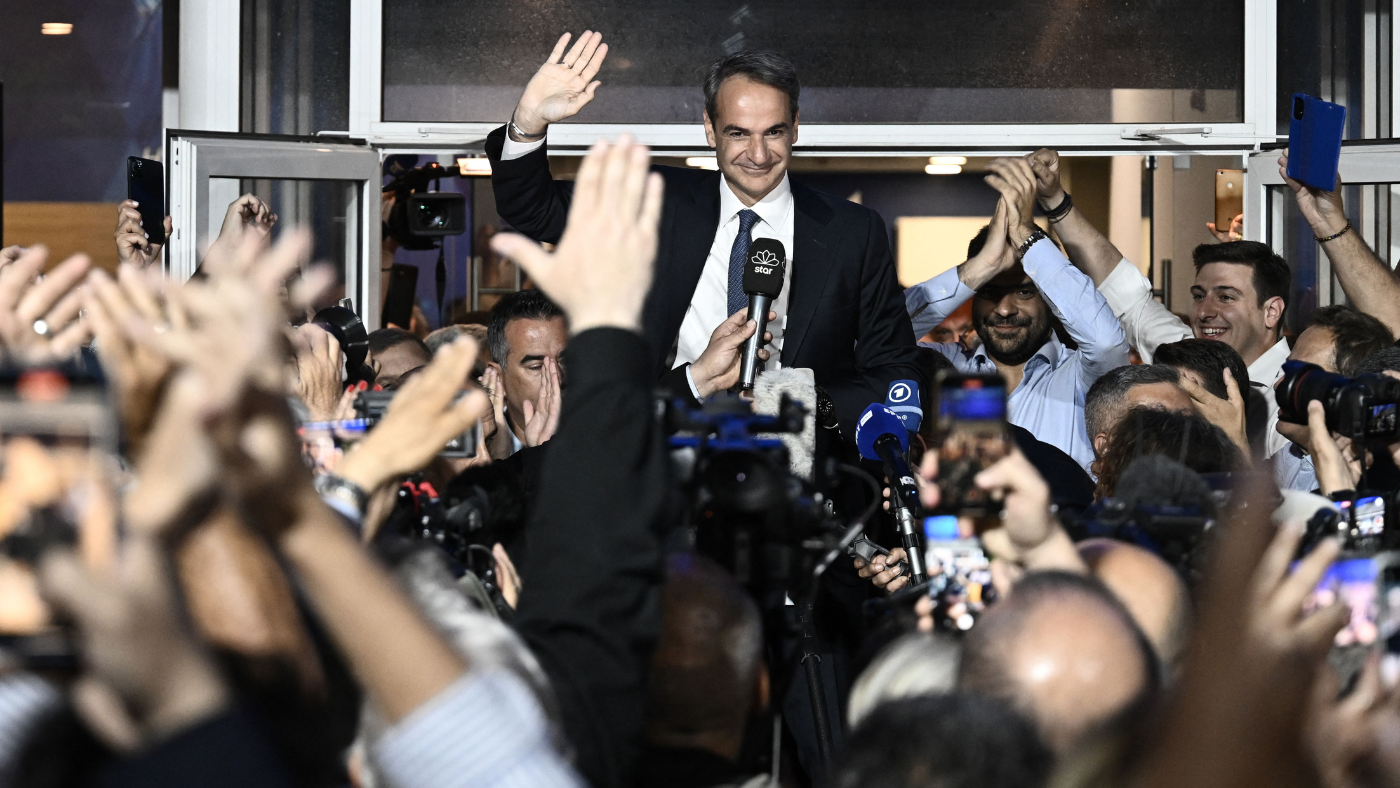 Greece’s ‘earthquake’ of an election: a right-wing triumph
Greece’s ‘earthquake’ of an election: a right-wing triumphfeature PM Kyriakos Mitsotakis led his New Democracy party to victory on 21 May
-
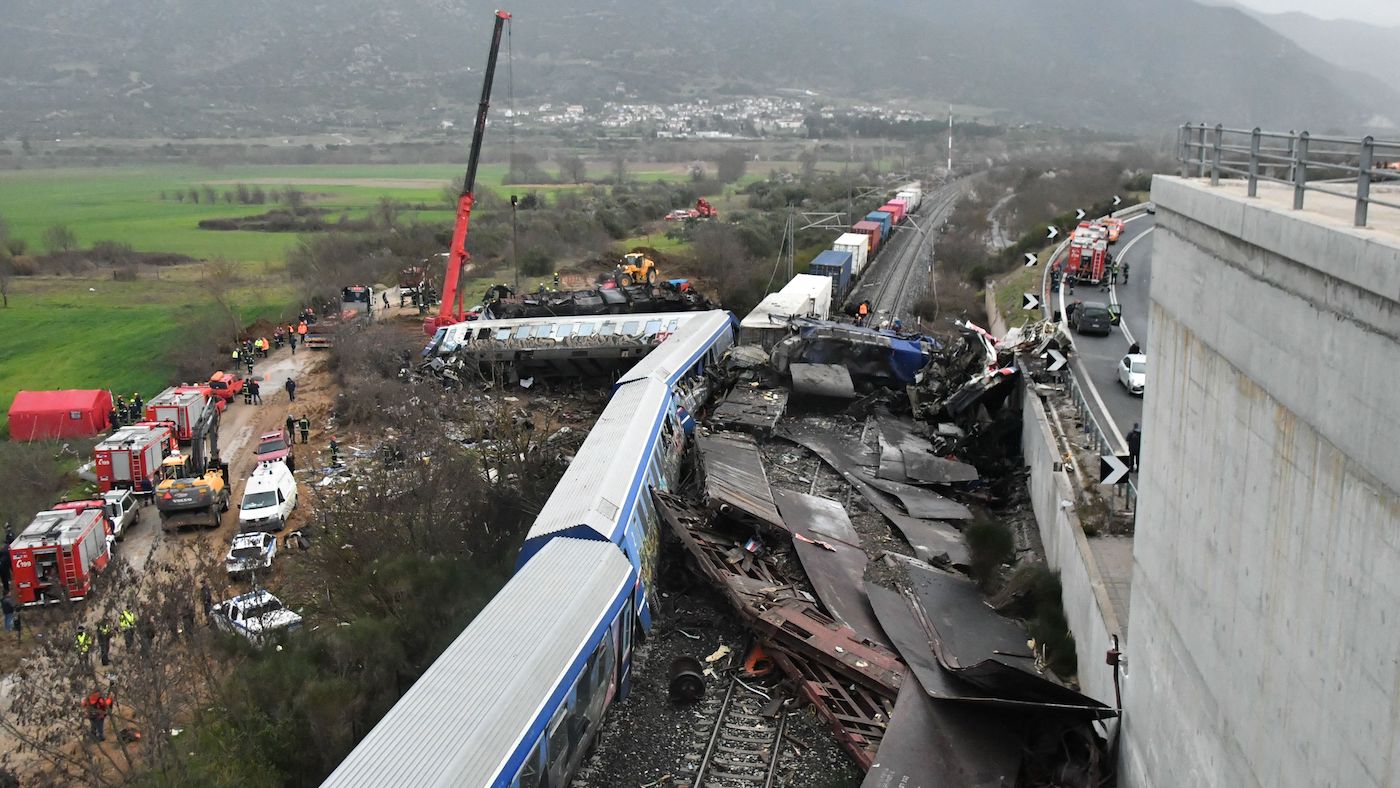 Greek rail workers strike as anger grows over deadly crash
Greek rail workers strike as anger grows over deadly crashSpeed Read Protests erupt in Athens as death toll from train collision rises to 57
-
 The Week Unwrapped: Korean succession, terror by algorithm and German disquiet
The Week Unwrapped: Korean succession, terror by algorithm and German disquietpodcast Could a 10-year-old girl rule North Korea? Will an Isis victim upend web law? And why is Germany upset with its Oscars contender?
-
 The Week Unwrapped: Chinese chips, the Pope in Africa and podcasting
The Week Unwrapped: Chinese chips, the Pope in Africa and podcastingpodcast Is China losing the microchip war? What is the Vatican doing in South Sudan? And has the podcast tide turned?
-
 The Week Unwrapped: Sex and health, the Earth’s core and another new year
The Week Unwrapped: Sex and health, the Earth’s core and another new yearpodcast Is the NHS failing British women? What’s going on at the centre of our planet? And what’s in a date?
-
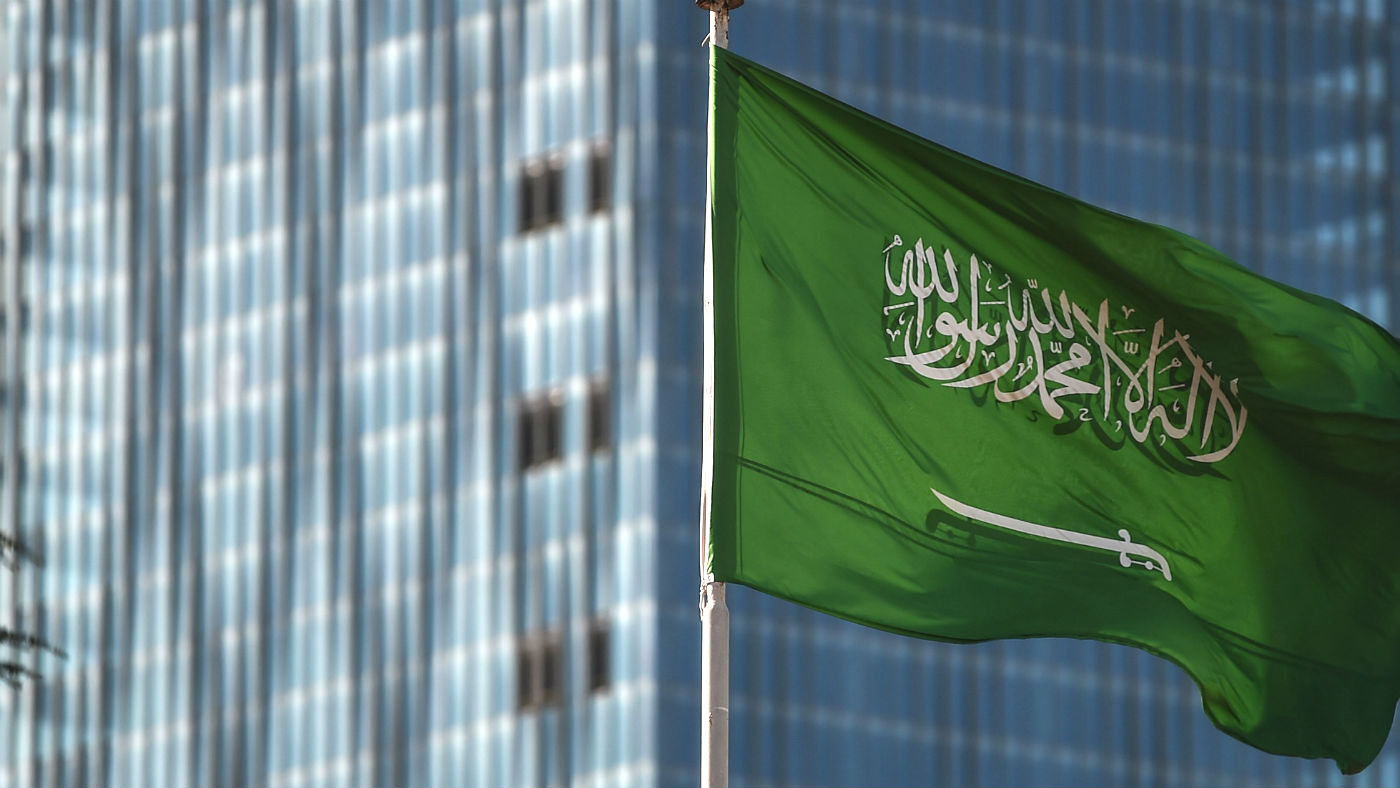 The Week Unwrapped: Antisocial Saudis, hormone therapy and retro tech
The Week Unwrapped: Antisocial Saudis, hormone therapy and retro techpodcast Why is Saudi Arabia investing in – and banning – social networks? Will new research make life easier for trans women? And is the future of technology dumb?
-
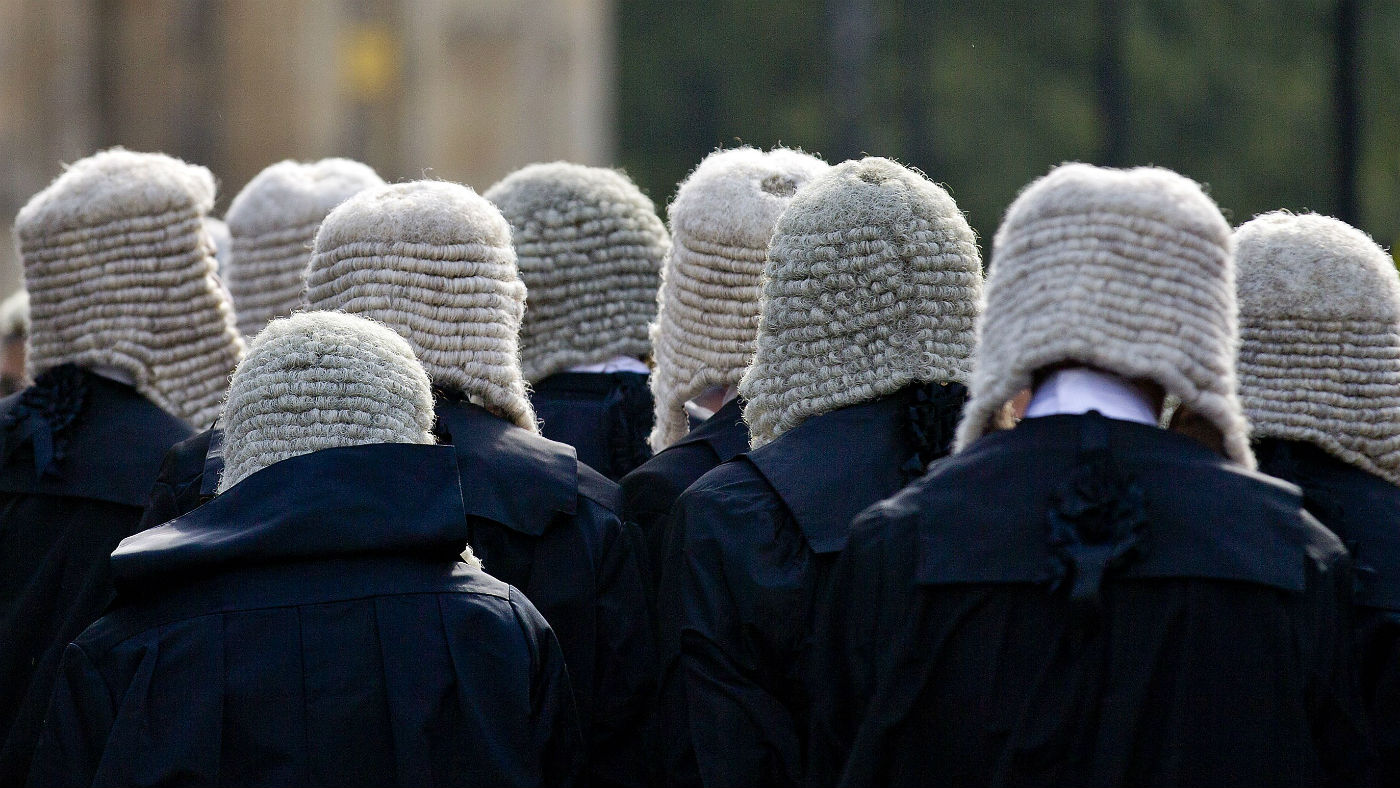 The Week Unwrapped: AI in court, Germans in Taiwan and ghostwriters
The Week Unwrapped: AI in court, Germans in Taiwan and ghostwriterspodcast Could artificial intelligence replace lawyers? What does Taiwan want from Germany? And are ghostwriters becoming less ghostly?